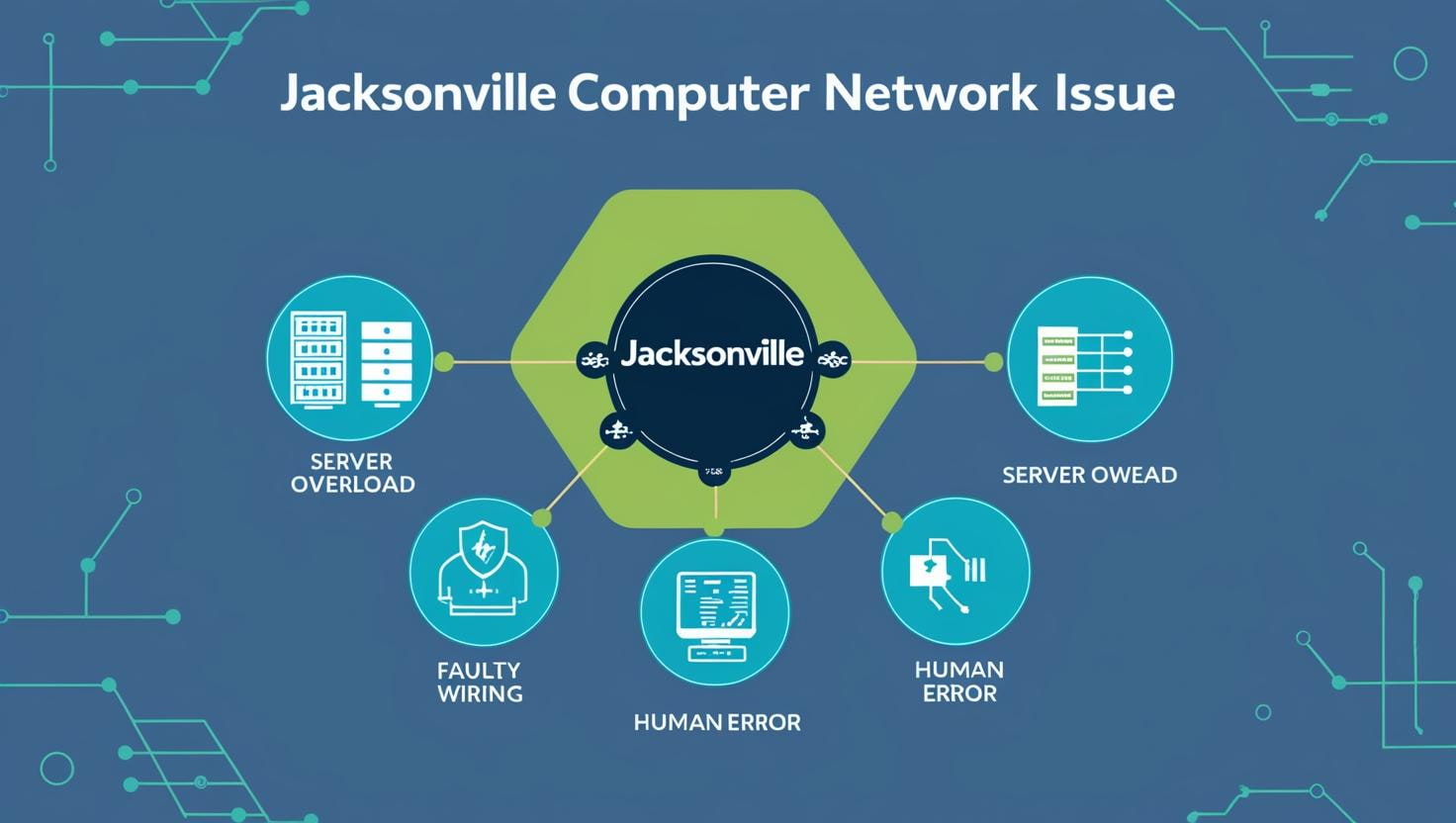Introduction
In recent months, Jacksonville has faced significant computer network issues that have disrupted both daily life and business operations. From slow internet speeds to complete system outages, these problems have raised concerns among residents and businesses alike.
But what exactly is behind the Jacksonville computer network issue? Let’s explore the causes, impacts, and potential solutions.
What Is the Jacksonville Computer Network Issue?

The Jacksonville computer network issue refers to a series of disruptions affecting the city’s digital infrastructure. These disruptions have manifested in various forms, including:
- Slow Internet Speeds: Many users have reported sluggish internet connections, especially during peak hours.
- Frequent Disconnections: Users experience intermittent connectivity, leading to frustration and decreased productivity.
- Network Downtime: Entire systems have gone offline, affecting essential services and operations.
- Security Vulnerabilities: Increased susceptibility to cyberattacks due to outdated security measures.
These issues have not only inconvenienced residents but have also impacted businesses, leading to financial losses and operational challenges.
Causes of the Jacksonville Computer Network Issue
Several factors contribute to the ongoing network problems in Jacksonville:
1. Aging Infrastructure
Much of Jacksonville’s network infrastructure is outdated. Legacy systems struggle to keep up with the growing demand for speed and reliability.
2. Rapid Urban Growth
As Jacksonville expands, its network infrastructure often struggles to keep pace. New residential and commercial developments demand immediate connectivity, but implementing large-scale upgrades takes time.
3. Lack of Redundancy
Many networks in Jacksonville lack redundancy, meaning there is no backup system to take over during failures. This results in extended downtimes when primary networks go offline.
4. Insufficient IT Expertise
Small businesses in Jacksonville often lack access to skilled IT professionals. Without proper network management, minor issues escalate into major disruptions.
5. Cybersecurity Gaps
The absence of robust security measures leaves networks vulnerable to attacks, which can cripple systems and compromise sensitive data.
6. Environmental Factors
Jacksonville’s coastal location exposes its infrastructure to environmental challenges such as hurricanes, flooding, and high humidity. These factors can damage physical components, leading to service interruptions.
7. Bandwidth Overload
As more devices connect to the network, especially during peak hours, the available bandwidth becomes strained. This congestion leads to slower speeds and increased latency.
Impacts of the Jacksonville Computer Network Issue

The ongoing computer network issues in Jacksonville have far-reaching consequences:
1. Disruption of Essential Services
Municipal services, including utility billing and permitting, have been affected. Residents face delays in accessing these services, leading to frustration and inconvenience.
2. Economic Consequences
Businesses relying on stable internet connections have experienced downtime, resulting in lost revenue and decreased productivity.
3. Educational Setbacks
With the rise of online learning, students have been impacted by unreliable internet access, hindering their ability to participate in classes and complete assignments.
4. Security Risks
The vulnerabilities in the network have made it easier for cybercriminals to exploit weaknesses, leading to potential data breaches and loss of sensitive information.
Proposed Solutions to Address the Issue
To resolve the Jacksonville computer network issue, experts suggest several measures:
1. Infrastructure Upgrades
Investing in modern infrastructure, such as fiber-optic networks and 5G towers, is crucial to addressing Jacksonville’s connectivity issues. City-wide initiatives to replace aging systems can drastically improve network reliability.
2. Implementing Network Redundancy
To minimize downtime, businesses and ISPs in Jacksonville should focus on building redundant systems. Backup servers, secondary internet connections, and failover mechanisms can ensure continuity during outages.
3. Strengthening Cybersecurity Measures
Implementing robust cybersecurity measures is essential. Firewalls, intrusion detection systems, and regular vulnerability assessments can protect Jacksonville’s networks from cyber threats.
4. Regular Maintenance and Upgrades
Replacing outdated equipment and performing regular maintenance can significantly reduce hardware failures. Ensuring that routers, switches, and cables are up to date can improve overall performance.
5. Training IT Professionals
Investing in IT training programs can help businesses and individuals better manage their networks. Certifications like Cisco CCNA or CompTIA Network+ can equip Jacksonville’s workforce with the skills needed to maintain complex systems.
6. Disaster Recovery Planning
Given Jacksonville’s susceptibility to weather-related disruptions, having a robust disaster recovery plan is essential. Cloud backups, off-site servers, and emergency response teams can minimize the impact of natural disasters on network systems.
7. Collaboration with ISPs
Working closely with Internet Service Providers can lead to better service delivery. Shared resources and coordinated efforts can help in quickly addressing issues and implementing solutions.
Conclusion
The Jacksonville computer network issue is a multifaceted problem stemming from aging infrastructure, environmental challenges, and increasing demand. While the impacts have been significant, there are clear solutions that can restore and enhance the city’s digital connectivity.
By investing in modern infrastructure, implementing redundancy, strengthening cybersecurity, and providing training, Jacksonville can overcome these challenges and build a more resilient network for the future.
Addressing these issues promptly will ensure that residents and businesses can rely on stable and secure network services moving forward.



